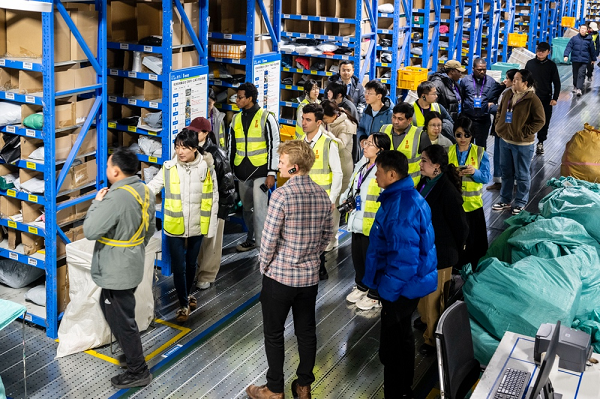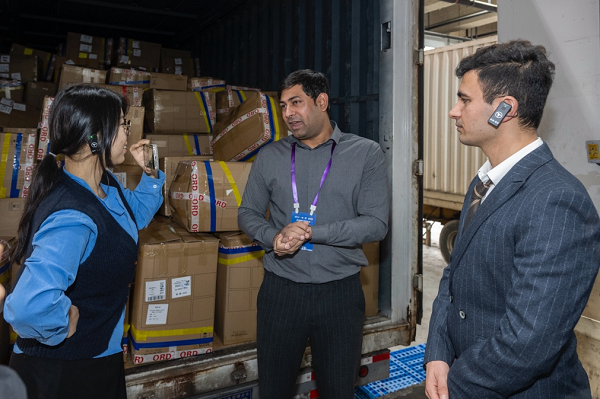Hangzhou's air cargo hub showcases China's cross-border e-commerce speed

Participants in the 2024 Belt and Road JinHub International Communication event visits Hangzhou's Air Cargo Park in Xiaoshan on Dec 25. [Photo/hangzhou.com.cn]
Participants in the 2024 Belt and Road Jin Hub International Communication event visited Hangzhou's Air Cargo Park in the China (Hangzhou) Cross-Border E-Commerce Pilot Zone in Xiaoshan on Dec 25.
Inside the 30,000-square-meter warehouse, automated sorting lines operate at high efficiency. Packages from across China are swiftly unpacked, sorted, and consolidated for dispatch to over 60 countries, often leaving the warehouse within 24 hours. Orders can reach international customers in as few as five days, rivaling domestic delivery speeds.
Zhejiang Wuchancheng Technology Co handles nearly 90 million orders annually, exporting goods totaling 35,000 metric tons and $1.28 billion in value. "Cross-border e-commerce cuts out middlemen, reducing costs while enhancing profitability and the consumer experience," explained a company manager.
Efficiency is paired with robust oversight. Hangzhou Customs has implemented "digital clearance" technologies like electronic waybills and AI-driven "smart imaging", boosting customs efficiency by 20 percent.
Hangzhou International Airport's international cargo terminal, the nation's first multi-level intelligent air freight hub, plays a crucial role. Hosting companies like Cainiao Network and Best International, the terminal supports 21 regular international cargo routes, with a 2023 throughput of 60 million tons.
"Hangzhou's leadership in e-commerce is world-class," remarked Mohammadi, a student from Afghanistan. "The real-time tracking system for every parcel ensures security and reliability in logistics."

A foreign anchor shares his perspectives on the logistics park. [Photo/hangzhou.com.cn]
-
Visionary Pathway - Hangzhou Playbook
July 15, 2025



